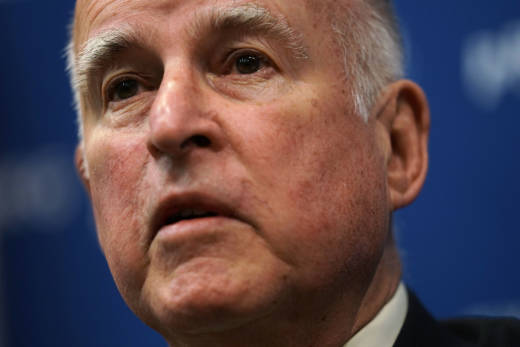It's not the long-term investments in anti-poverty programs that liberal lawmakers have been pushing for, but Gov. Jerry Brown does want to use an unexpected $8 billion in projected revenues to tackle some of California's most intransigent problems, including helping cities combat homelessness and mental illness and investing in crumbling infrastructure.
A relaxed Brown appeared before reporters Friday morning to unveil his final budget proposal, a revision of his January plan for the fiscal year that begins July 1.
He repeated a now-familiar refrain, warning that the state's nearly decade-long economic expansion will eventually end -- and making clear that his priorities include growing the state's so-called rainy day fund to a record $13.8 billion and investing extra money in one-time expenditures, not ongoing spending.
"I am trying to leave the most responsible budget I can to the next governor, so I am going to be reluctant to embark upon programs that will continue and grow into the future," Brown said. "They all have merit to them, but we are already overextended -- it's hard to believe when we have so much money in the bank, but we are."
Brown spoke as he stood between familiar charts laying out the history of economic downturns and the massive growth that programs such as public education and Medi-Cal, the state's health insurance for the poor, have enjoyed under his watch.

